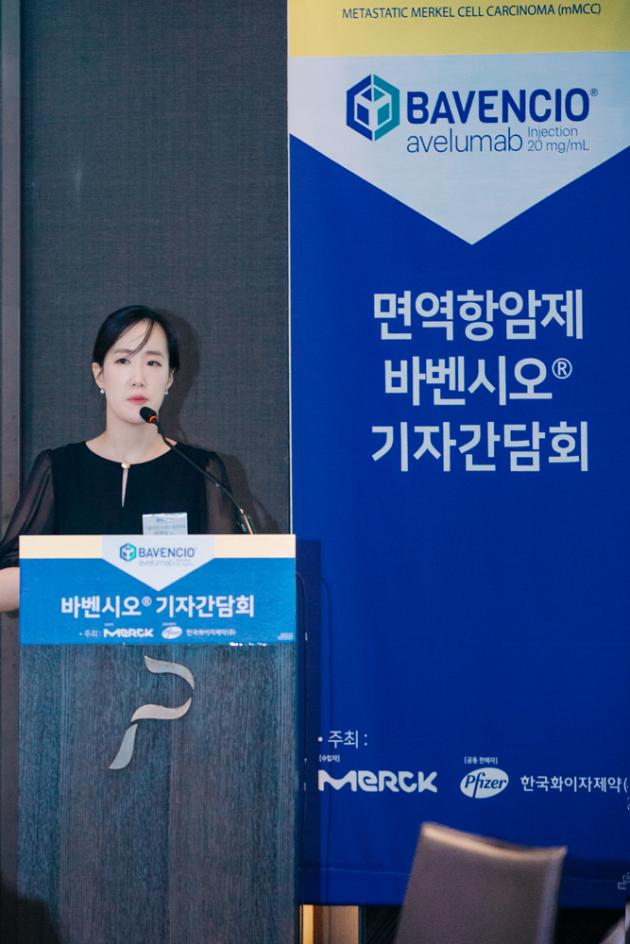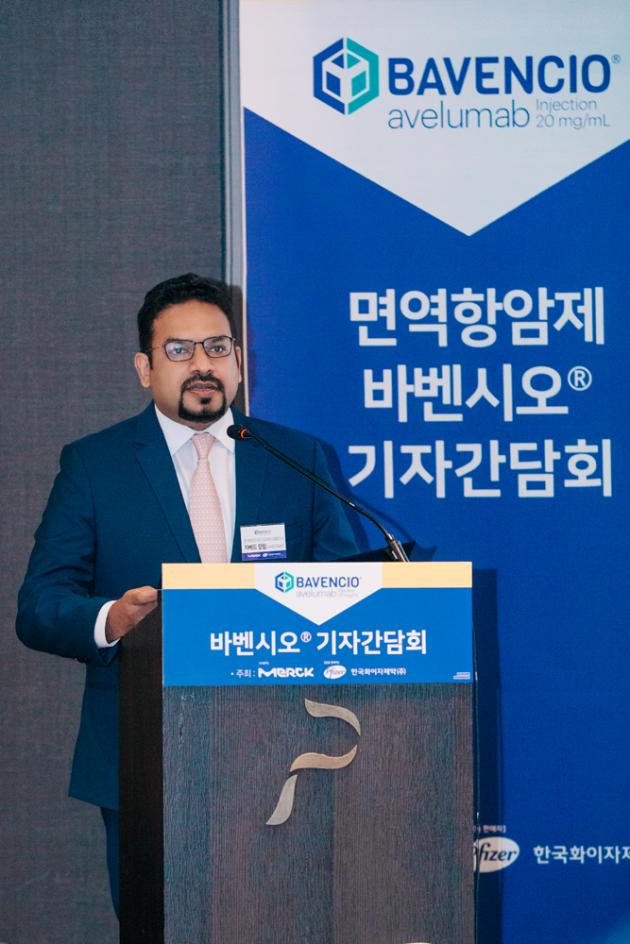Merck and Pfizer will address the unmet medical need of patients suffering from metastatic merkel cell carcinoma (MCC) in Korea, with the launch of Bavencio, a PD-L1 inhibitor, the companies said Thursday.
The number of patients with MCC is unknown but, given MCC occurs in Japan in a million to one ratio, there may be about 50 MCC patients in Korea, experts estimate. The patient pool becomes ever smaller for metastatic MCC patients as only about one-third of MCC patients have metastatic symptoms.
The two companies stressed that the disease-specific survival in MCC is challenging to measure, given the dominant occurrence of this disease among older people. The nodal metastases to local, regional lymph nodes occur early, and patients may have their disease progressed to distant organs, such as liver, bones, lung, brain, and faraway lymph nodes.

“MCC is a rare and aggressive skin cancer with a very rapid onset of local lymph node involvement and distant metastasis, with a low mean survival time of about six months,” said Professor Kim Mi-so from the Department of Oncology at Seoul National University Hospital said.
Currently, options for the treatment of stage 4 metastatic MCC are limited, and there is no licensed therapy for metastatic MCC except Bavencio, she added.
The two companies received sales approval for the drug from the Ministry of Food and Drug Safety in March after they proved the drug’s efficacy through a phase 2 clinical trial, called JAVELIN Merkel 200.
In the Part A trial of JAVELIN Merkel 200, which tested the treatment’s efficacy in 88 patients who received chemotherapy but saw the disease proceed, Bavencio reported an objective response rate (ORR) of 33 percent, a complete response (CR) of 11.4 percent and a partial response (PR) of 21.6 percent.
Overall survival was 12.9 months, and 93 percent of the patients had a tumor response for at least six months at the time of analysis, while 74 percent had a tumor response for at least 12 months.
In Part B of the trial, which treated patients with metastatic MCC without records of treatment, the interim result showed an ORR of 39.7 percent, CR of 13.8 percent and PR 25.9 percent. Also, 89 percent of the patients had a tumor response for at least three months, while 78 percent had a tumor response for at least six months.
The most common adverse effect was fatigue, diarrhea, loss of appetite, and constipation.

Javed Alam, new general manager of Merck Biopharma Korea, when asked about the small metastatic MCC population in Korea, said, “Merck Biopharma and Pfizer are committed to treating patients who suffer from rare diseases no matter how small their number is.”
Of course, as Bavencio is a PD-L1 inhibitor the two companies are conducting various other clinical trials, Alam said, while citing as an example both monotherapy and combination therapy to confirm the treatment’s efficacy on other cancers such as renal cell cancer and gastric cancer.
Alam noted that the company plans to expand indications for Bavencio in the future if clinical trials confirm the efficacy of the treatment on particular cancer types.

